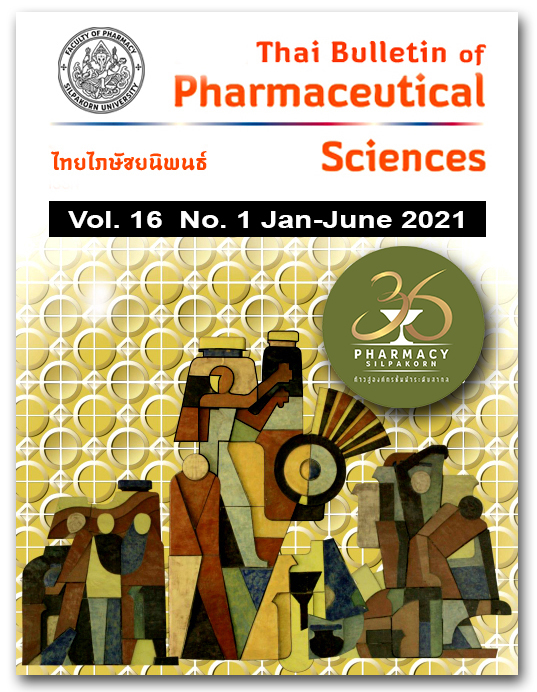IDENTIFYING RISKS OF PROHIBITED SUBSTANCES USE IN ATHLETES
DOI:
https://doi.org/10.69598/tbps.16.1.61-74Keywords:
identifying risks, prohibited substance use in athletesAbstract
This qualitative research aimed to identify the risk factors that contribute to athletes using prohibited substances. Data were collected by carrying out in-depth, semi-structured interviews with 8 experts who were experienced administrators of sports organizations or sports coaches. Data were analyzed through content analysis. The results found five distinct areas that affect the risk of athletes taking prohibited substances: 1) Risks affecting athletes directly – arising from their environment, from coaches, from the athlete's family, and from medical services – that result in the use of prohibited substances by athletes. 2) The risks arising as a result of the policies and operations of doping-related agencies. These risks are caused by unclear doping control policies. To be effective, the doping control department must be an independent organization. 3) Education and outreach programmes - these are important for athletes, coaches, physicians and stakeholders. 4) Academic services investigating prohibited substances - the lack of academic research relating to prohibited substance use can result in insufficient information being available for athletes, as well as an inadequate number of experts who can monitor athletes effectively. 5) Research related to prohibited substances and their effectiveness - there must be research on prohibited substances in all dimensions, including Thai herbs, because the research results can be used to find solutions to the problem of prohibited substance use in athletes. Through identifying the areas that affect the risk of athletes using prohibited substances, policies can be developed to mitigate these risks and to help prevent the use of prohibited substances by athletes and stakeholders in sports associations and relevant sports organizations at all levels.
References
Drugs denial in 1986 cycle death [internet]. [cited 2020 May 13] Available from: http://news.bbc.co.uk/2/hi/uk_news/ wales/south_east/7767837.stm.
CPD Direct professional Development direct to you. Ethics 1 January 24, 2013 by Iain sykes. History. [internet]. [cited 2020 May 13] Available from: https://cpddirect.co.za/ ethics-1-doping-in-sport.
World Anti-Doping Agency. Who we are. The agency’s history [internet]. [cited 2020 May 13]. Available from: https://www.wada-ama.org/en/who-we-are.
World Anti-Doping Agency. What we do. The code [internet]. [cited 2020 May 13]. Available from: https://www.wada-ama.org/en/what-we-do/the-code.
Varin T. General knowledge about doping control in sport [internet]. [cited 2020 May 13]. Available from: http://61.19.241.96/w3c/senate/pictures/comm/51/sport%20science/012%20Doping%20Control.pdf. (in Thai)
Doping Control Agency of Thailand. History [internet]. [cited 2020 May 13]. Available from: http://www.dcat.in.th/TH/AboutUs/history. (in Thai)
World Anti-Doping Agency. Anti-Doping statistics. The 2018 anti-doping testing figures [internet]. [cited 2020 May 13]. Available from: https://www.wada-ama.org/sites/ default/files/resources/files/2018_testing_figures_report.pdf
World Anti-Doping Agency. Anti-Doping statistics. The 2017 anti-doping testing figures [internet]. [cited 2020 May 13]. Available from: https://www.wada-ama.org/sites/ default/files/resources/files/2017_anti-doping_ testing_figures_en_0.pdf
Manasicha M. Analytical Sciences and National Doping Test Institute. The letter announcement of Mahidol University; 2018 June 19 (3). (in Thai)
Chorpecht J. Analytical Sciences and National Doping Test Institute. The annual summary; 2020. (in Thai)
International Floorball Federation. IFF announces anti-doping rule violation [internet]. [cited 2020 May 13]. Available from: https://floorball.sport/2018/05/28/iff-announces-anti-doping-rule-violation.
Risk Management Center Mahidol University. Risk management manual [internet]. [cited 2020 Aug 19]. Available from: http://www.op.mahidol.ac.th/orau/ index.php/Risk-management/Risk-Management-Manual.html. (in Thai)
The Canadian Centre for Ethics in Sport. Risk Management [internet]. [cited 2020 Aug 19]. Available from: https://cces.ca/sites/default/files/content/docs/pdf/cces-risk-management-program-.
Willick SE, Miller GD, Eichner D. The anti-doping movement. Adv Sports Med Concepts Controversies. 2016;8(3S):S125-32.
Thairath. Shocked in the Thai sport! 'James Bond' meets with doping to withdraw from SEA Games. [internet]. [cited 2020 July 29]. Available from: https://www.thairath.co.th/ content/503122. (in Thai)
SAT urged, 'Mermaid Ben' appeal to be banned after facing the dreaded reluctance to stop playing the national team. Sport slide [internet]. [cited 2020 May 17]. Available from: https://www.matichon.co.th/sport-slide/news_772496. (in Thai)
Shocking! 2 Thai athletes doping and forfeited 29th SEA Games medal. Thairatonline [internet]. [cited 2020 May 17]. Available from: http://www.Thairatcheerthailand.com/ content/1153590. (in Thai)
Di Luigi L, Pigozzi F, Sgro P, Frati L, Di Gianfrancesco A, Coppa M. The use of prohibited substances for therapeutic reasons in athletes affected by endocrine diseases and disorders: the therapeutic use exemption (TUE) in clinical endocrinology. J Endocrinol Invest. 2020;43(5):563-73.
World Anti-Doping Agency. What we do. The code [internet]. [cited 2020 July 29]. Available from: https://www.wada-ama.org/en/what-we-do/the-code
Murofushi Y, Kawata Y, Kamimura A, Hirosawa M, Shibata N. Impact of anti-doping education and doping control experience on anti-doping knowledge in Japanese university athletes: a cross-sectional study. Subst Abuse Treat Prev Policy. 2018;13(44):1-15.
World Anti-Doping Agency. What we do. Education & Prevention [internet]. [cited 2020 July 29]. Available from: https://www.wada-ama.org/en/media/news/2012-08/medal-boost-for-wada-outreach
Kim T, Kim YH. Korean national athletes’ knowledge, practices, and attitudes of doping: a cross-sectional study. Subst Abuse Treat Prev Policy. 2017;12(7):1-8.
Orr R, Grassmayr M, Macniven R, Grunseit A, Halaki M, Bauman A. Australian athletes' knowledge of the WADA Prohibited Substances List and performance enhancing substances. Int J Drug Policy. 2018;56:40-45.
World Anti-Doping Agency. Who we are. Our vision [internet]. [cited 2020 July 29]. Available from: https://www.wada-ama.org/en/who-we-are.
Downloads
Published
How to Cite
Issue
Section
License
All articles published and information contained in this journal such as text, graphics, logos and images is copyrighted by and proprietary to the Thai Bulletin of Pharmaceutical Sciences, and may not be reproduced in whole or in part by persons, organizations, or corporations other than the Thai Bulletin of Pharmaceutical Sciences and the authors without prior written permission.



